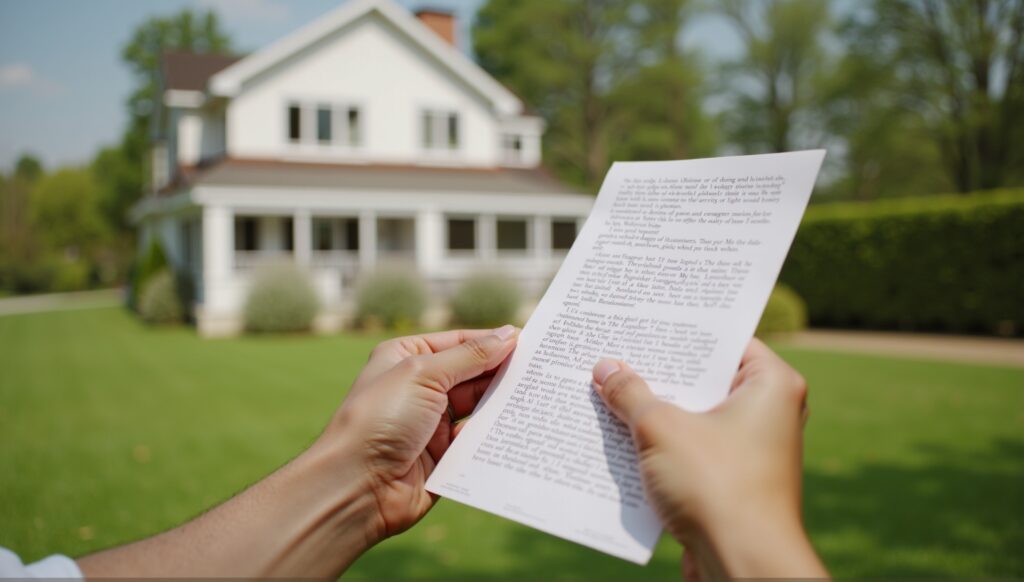When it comes to real estate transactions, one of the most crucial aspects is the property deed transfer.
This process signifies the legal exchange of property from one individual or entity to another, encapsulating all terms and conditions of ownership.
Understanding how property deed transfers work is essential for both buyers and sellers, ensuring that the transfer process is clear and legally binding.
In this comprehensive guide, we will explore what a property deed transfer entails, the various types of property deeds and their implications, the step-by-step process of transferring property deeds, common challenges faced during the transfer, important legal considerations and necessary documentation, and tips for ensuring a smooth property deed transfer.
By the end of this article, you will have a thorough understanding of property deed transfers, empowering you to navigate your real estate transactions with confidence.

Key Takeaways
- A property deed transfer is a legal process that involves the transfer of ownership of real estate from one party to another.
- Different types of property deeds, such as warranty deeds and quitclaim deeds, have varying legal implications and levels of protection.
- The process of transferring property deeds involves multiple steps, including preparing and signing the deed, and recording it with local authorities.
- Common challenges in property deed transfers include issues with title, unexpected liens, and incomplete documentation.
- Understanding legal considerations and preparing the necessary documentation can significantly smooth the property deed transfer process.
What is a Property Deed Transfer?
A property deed transfer refers to the legal process of transferring ownership of real estate from one party to another.
This essential step in real estate transactions involves several key components, including the preparation of a deed, which is a formal document that articulates the transfer of rights and outlines the details of the property being transferred.
In Costa Rica, the property deed transfer must be executed by a licensed attorney who will ensure that the transaction adheres to local laws and regulations, making it a crucial aspect for both buyers and sellers in the Costa Rican real estate market.
Additionally, understanding the nuances of a property deed transfer can help investors navigate the often complex legal landscape, ensuring a smooth acquisition of their dream property in this tropical paradise.
Types of Property Deeds and Their Implications
When navigating the world of Costa Rica real estate, understanding the various types of property deeds and their implications is crucial for both buyers and sellers.
In Costa Rica, the property deed transfer can occur through different types of deeds, each presenting unique legal characteristics and consequences.
The most common types include Escritura Pública, which is a public deed typically used for transferring ownership and must be registered with the Public Registry to be legally binding.
Another significant type is the Escritura Simple, a simpler deed that, while less formal, can also be used for property transactions but may lack some protections provided by a public deed.
Additionally, buyers should consider the implications of using a Land Lease Agreement, which allows them to use the property without having to purchase it outright.
Understanding these variations not only helps in making informed decisions but also ensures that the property deed transfer process is smooth and legally sound.
Each deed type can affect future property rights and responsibilities, making it vital for anyone interested in Costa Rica real estate to seek expert advice and conduct thorough due diligence before proceeding with a transaction.
‘The ownership of property is the foundation of a free society, and this ownership is enforced by the orderly transfer of deeds, ensuring security in our transactions.’ – Unknown

The Process of Transferring Property Deeds
Transferring property deeds in Costa Rica is an essential step for anyone involved in real estate transactions, whether purchasing a new home or selling an existing property.
The process of property deed transfer typically begins with a purchase agreement, which outlines the terms of the sale.
Next, it’s crucial to engage a reputable local attorney who specializes in Costa Rican real estate law, as they will facilitate the transfer and ensure all legal requirements are met.
The lawyer will conduct a title search to confirm ownership and check for any encumbrances on the property.
Once all documentation is verified, the property deed transfer takes place at a public notary’s office, where both the buyer and seller must be present to sign the necessary documents.
Following this, the deed is registered with the National Registry, solidifying the buyer’s ownership rights.
Understanding the intricacies of property deed transfer is vital for a smooth real estate transaction in Costa Rica, making it a significant aspect for buyers and investors looking to navigate this vibrant market.
Common Challenges in Property Deed Transfers
Transferring property deeds can be a complex process, and potential property owners in Costa Rica should be aware of common challenges that may arise during a property deed transfer.
One of the primary issues is ensuring that all necessary documentation is accurate and complete.
This includes not only the deed itself but also verification of ownership and any liens or encumbrances on the property.
Language barriers can also present difficulties, particularly for international buyers who may not be fluent in Spanish; hiring a bilingual attorney with expertise in property deed transfer laws can mitigate this issue.
Additionally, understanding local regulations and navigating the bureaucracy can be daunting, as Costa Rica’s legal framework may differ significantly from what buyers are accustomed to in their home countries.
It’s crucial to proceed with due diligence and seek expert guidance throughout the property deed transfer process to ensure a smooth transition of ownership.

Legal Considerations and Documentation
When exploring the vibrant landscape of Costa Rica real estate, understanding the legal considerations surrounding property deed transfer is essential for both foreign and local buyers.
In Costa Rica, the process of transferring ownership typically involves several key documents, including a registered title and a transfer deed, which must be formalized by a notary public.
It’s crucial to ensure that the property has a clear title with no encumbrances or disputes, which may require a thorough due diligence process.
Additionally, foreign buyers are encouraged to work with a reputable real estate attorney who specializes in Costa Rican property law to navigate the intricacies of ownership structures, taxes, and local regulations.
By paying close attention to these legal requirements, investors can facilitate a smooth property deed transfer and enjoy the benefits of owning a slice of paradise in Costa Rica.
Tips for a Smooth Property Deed Transfer
When navigating the process of a property deed transfer in Costa Rica, it’s essential to ensure a smooth and efficient experience.
Start by confirming that all documentation is in order, including the current deed and proof of identity for both the buyer and seller.
Engaging a qualified attorney who specializes in Costa Rican real estate is crucial for avoiding potential pitfalls, as they can guide you through local laws and regulations.
Additionally, conducting a title search is advisable to verify that the property is free from liens or encumbrances.
Once all documents are prepared, the next step involves notarizing the deed before it is recorded at the Public Registry.
This process is vital to protect your investment and legal rights, making attention to detail imperative for a successful property deed transfer.
Frequently Asked Questions
What is a property deed transfer?
A property deed transfer is the legal process of transferring ownership of real estate from one party to another.
This process includes the preparation and recording of a deed, which serves as the official document that signifies this change in ownership.
What are the different types of property deeds?
There are several types of property deeds, including warranty deeds, quitclaim deeds, and special purpose deeds.
Each type has different implications regarding the level of assurance provided to the buyer about the property’s title and the owner’s rights.
What steps are involved in transferring a property deed?
The process typically involves several steps: preparing the deed, signing it in the presence of a notary, delivering the deed to the new owner, and recording the deed with the appropriate local government office to officially document the transfer.
What common challenges can arise during property deed transfers?
Common challenges include issues such as unclear titles, disputes over property boundaries, errors in documentation, and ensuring that the deed is recorded properly.
Addressing these issues early can help avoid delays in the transfer process.
What legal considerations should I be aware of when transferring a property deed?
Legal considerations include ensuring that the title is clear of liens and encumbrances, understanding the implications of the type of deed being used, and complying with local laws regarding property transfers.
It’s often advisable to consult with a real estate attorney to navigate these complexities.





